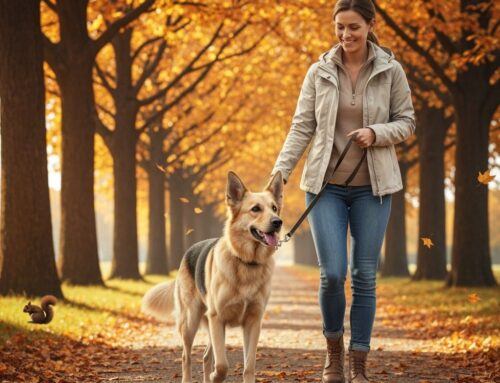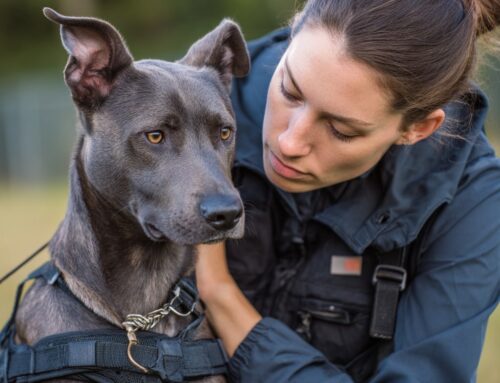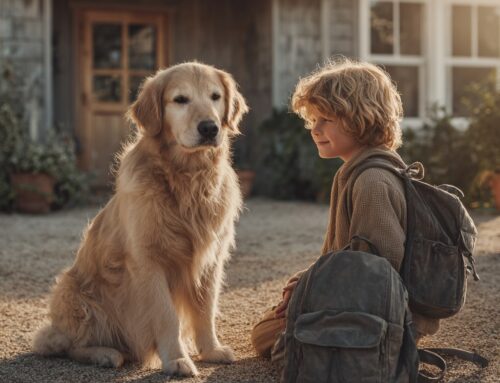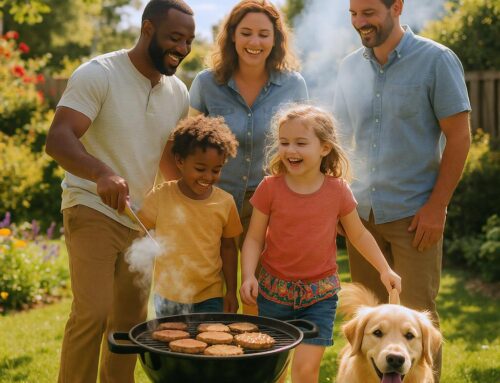Bringing a new puppy into your life is an exciting and rewarding experience as a puppy parent. However, it also comes with its fair share of challenges, particularly when it comes to training and socialization. Proper socialization and early training are crucial for shaping your puppy’s behavior and ensuring they grow into well-adjusted, confident, and friendly adult dogs. We’ll get into the importance of socialization and provide valuable tips for mastering puppy training, including the benefits of puppy preschool classes and how these early training can impact your dog’s life to be the best it can be for them.
Understanding Socialization
Before diving into the specifics of puppy socialization and training, it’s essential to understand the significance of these early developmental stages in a puppy’s life. Just like human children, puppies undergo critical periods of learning and socialization during their formative weeks and months. The experiences they encounter during this time can have a lasting impact on their behavior, temperament, and overall well-being as adult dogs.
Socialization is the process of exposing your puppy to a variety of people, animals, environments, and experiences in a positive and controlled manner. This critical period typically occurs between 3 to 14 weeks of age and lays the foundation for your puppy’s future behavior and temperament. During this time, puppies are like sponges, soaking up information and forming impressions about the world around them. Proper socialization helps prevent fearfulness, aggression, and anxiety in adulthood, making it essential for all puppies, regardless of breed or size. By proactively addressing their needs for socialization and training, you lay the groundwork for a harmonious relationship and a fulfilling life together. We’ll explore the importance of socialization, provide practical tips for effective training, and highlight the benefits of enrolling your puppy in preschool classes tailored to their developmental needs.
Benefits of Socialization for Your Puppy Training
Confidence Building
Exposing your puppy to new experiences not only broadens their understanding of the world but also helps them build confidence in unfamiliar situations. Whether it’s encountering different environments, meeting new people, or interacting with unfamiliar objects, each new experience offers an opportunity for your puppy to learn and grow. As they navigate these experiences with your guidance and support, they’ll become more assured and self-assured, ultimately leading to a confident and well-adjusted adult dog.
Reduced Fear and Aggression
Proper socialization plays a crucial role in preventing fear-based aggression in puppies. By gradually introducing them to a wide range of people, animals, and environments during their critical socialization period, you help them develop positive associations and confidence in unfamiliar situations. This exposure reduces the likelihood of fear-based reactions and aggressive behavior towards people, other dogs, or new stimuli, leading to a happier and more well-adjusted dog.
Improved Adaptability
Socialized puppies are more adaptable to changes in their environment and less likely to develop anxiety or stress-related behaviors. By exposing them to various sights, sounds, and experiences from an early age, you help them develop resilience and coping mechanisms to navigate new situations with ease. This adaptability not only benefits your puppy in everyday life but also prepares them for future challenges and transitions, such as moving to a new home or traveling.
Better Communication Skills
Interacting with a diverse range of dogs and people teaches puppies valuable communication skills and helps them understand social cues. Whether it’s learning to read another dog’s body language during play sessions at a dog park or responding to your verbal commands, each interaction provides an opportunity for your puppy to refine their communication skills and become a confident dog with great communication skills. This enhanced understanding of social dynamics and communication cues fosters better relationships with both humans and animals, enriching their social experiences and interactions.
Stronger Bond with Owners
Socialization activities, such as training sessions and playtime, strengthen the bond between puppies and their owners. By engaging in positive, rewarding experiences together, you deepen your connection and establish trust and mutual respect. This bond not only enhances your relationship with your puppy but also lays the foundation for a lifelong partnership built on love, understanding, and companionship.

Incorporating these aspects into your puppy’s socialization and training regimen will help them develop into confident, well-adjusted, and socially adept adult dogs while strengthening the bond between you and your furry companion.
Tips for Effective Socialization for Your Puppy Training
1. Start Early: Start socializing your puppy at the earliest opportunity, especially during the critical period for effective socialization. Early socialization sets the stage for a well-adjusted and confident adult dog, so don’t hesitate to begin this crucial process as soon as you bring your puppy home.
2. Positive Reinforcement Training: Use treats, praise, and toys to reward your puppy for positive social interactions and calm behavior with positive reinforcement.
3. Gradual Exposure: Ease your puppy into new experiences gradually, beginning with less stimulating environments and progressively escalating the level of exposure.
4. Puppy Preschool Classes: Enroll your puppy in a reputable puppy preschool class to provide structured socialization opportunities and basic training exercises.
5. Supervised Interaction: Always supervise interactions with other dogs and people, intervening if necessary to prevent negative experiences.
6. Consistency: Be consistent with your training methods and expectations to avoid confusion and reinforce desired behaviors.
7. Avoid Overwhelming Situations: Pay attention to your puppy’s body language and avoid exposing them to situations that may overwhelm or scare them.
Mastering Puppy Training with Preschool Classes
Puppy preschool classes offer a structured and controlled environment for socialization and basic training. These classes provides puppies with the opportunity to interact with their peers under the guidance of experienced trainers.
Benefits of Puppy Preschool Classes
Structured Socialization
Puppy preschool classes provide a structured environment for socialization, allowing puppies to interact with other dogs in a controlled setting. Under the supervision of experienced trainers, puppies learn appropriate social behaviors, such as greeting other dogs politely, playing without becoming overly rough, and understanding canine body language. These controlled interactions help prevent behavioral issues such as fearfulness or aggression towards other dogs, setting the foundation for positive socialization experiences throughout their lives.
Basic Training
In addition to socialization, a puppy class can offer basic training exercises to teach young puppies essential obedience commands. Experienced trainers use positive reinforcement techniques to encourage behaviors such as sitting, staying, coming when called, and leaving objects alone (e.g., “leave it”). These fundamental commands form the building blocks for more advanced training and help puppies develop impulse control, focus, and responsiveness to their owners’ cues.
Behavior Management
Puppyhood is a critical time for addressing common behavior issues such as mouthing, chewing, and housebreaking. Trainers in puppy preschool classes provide guidance and support to help owners address these issues effectively. They offer strategies for redirecting chewing behavior towards appropriate toys, teaching puppies to use the bathroom outdoors, and managing mouthing or nipping in a gentle yet effective manner. By addressing these behaviors early on, owners can prevent them from becoming ingrained habits and ensure a smoother transition into adulthood.

Owner Education
Puppy preschool classes not only benefit puppies but also educate owners on puppy care, behavior, and training techniques. Trainers provide valuable insights into topics such as proper nutrition, grooming, exercise needs, and socialization milestones. They also offer guidance on understanding canine body language, interpreting puppy behavior, and implementing effective training methods at home. By empowering owners with knowledge and skills, puppy preschool classes enable them to become confident and capable caretakers, fostering a positive and fulfilling relationship with their furry companions.
Bonding Experience
Attending preschool classes with their puppies creates a unique bonding experience for owners. Sharing the journey of learning and training strengthens the bond between owners and their puppies, fostering trust, cooperation, and mutual understanding. Through positive reinforcement and shared experiences, owners and puppies develop a strong emotional connection built on trust, respect, and companionship. This bond forms the foundation for a lifelong partnership based on love, communication, and shared adventures.
Incorporating puppy preschool classes into your puppy’s training regimen offers numerous benefits, from structured socialization and basic training to behavior management, owner education, and strengthening the bond between you and your furry companion. By investing in your puppy’s early development, you set them up for success and create a solid foundation for a happy, well-behaved, and socially adept adult dog.
Tips for Choosing a Puppy Preschool
1. Research Options: Look for reputable puppy preschools with experienced trainers, positive reviews, and a focus on force-free, reward-based training methods.
2. Visit the Facility: Take a tour of the facility to assess cleanliness, safety measures, and the overall environment.
3. Ask Questions about the puppy classes: Inquire about the curriculum, class size, trainer qualifications, and vaccination requirements before enrolling your puppy.
4. Observe a Class: Attend a trial class or observe a session to see how the trainer interacts with the other puppies and assess the overall atmosphere to make sure they show the proper training that you prefer during these sessions.
5. Follow-Up Training: Consider enrolling in follow-up training classes or continuing education courses to build on the skills learned in puppy preschool.

Taking Puppy Training to the Next Level
Mastering puppy training requires a combination of socialization, basic obedience training, and positive reinforcement techniques. By starting early, providing positive experiences, and enrolling in puppy preschool classes, you can set your puppy up for success and ensure they become a well-behaved, confident, and socialized adult dog. Remember to be patient, consistent, and proactive in your training efforts, and enjoy the journey of watching your puppy grow into a happy and well-adjusted companion.
And to truly take your puppy’s training to the next level, consider enrolling them in the Yappy Puppy Program by Performance K9 Training and Boarding. This specialized program is perfect for puppies who are too young for traditional board and train programs. It includes two private lessons specifically tailored to address common challenges such as potty training, crate training, and socialization.
As your puppy grows and reaches five months old, they can seamlessly transition to the two-week Basic Behavior Modification Board and Train Program. Here, they’ll learn fundamental skills like leash manners, recall, and place commands in various distracting environments. To embark on this journey toward a lifetime of training success and companionship as the puppy parents, schedule a complimentary consultation to tailor a training program that suits you and your furry puppy friend.








